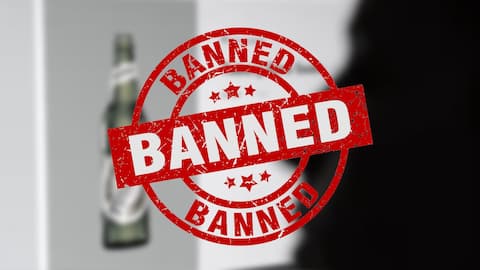What is surrogate advertising that India is banning
What's the story
The Indian government is gearing up to introduce a sweeping ban on surrogate advertising by liquor brands. This move is set to significantly impact major industry players who have been utilizing surrogate ads, showcasing less desirable items like water, music CDs, or glassware, due to the existing prohibition on direct alcohol advertising in the country. As per the government, there must be a clear distinction between the brand extension and the restricted product or service being advertised.
About
What is surrogate advertising?
Surrogate advertising is a marketing strategy where a company promotes a product indirectly through a related or less-regulated product to circumvent advertising restrictions. For example, if a brand cannot directly advertise alcoholic beverages due to legal restrictions, it might promote a non-alcoholic product like a branded glass or a lifestyle brand associated with the alcoholic product. This allows the brand to maintain visibility and brand association despite the restrictions.
Accountability measures
New rules to hold companies and celebrities accountable
Surrogate ads, often endorsed by top Bollywood stars in India, will face scrutiny under the new regulations. Both the company and the actors could be fined if the ad content is found misleading. Nidhi Khare, a senior official in consumer affairs, emphasized that indirect methods of product promotion are not acceptable. She warned that if advertisements are found to be surrogate or misleading, both the endorsers and celebrities involved could be held accountable.
Financial consequences
Potential penalties for liquor brands and market impact
Companies such as Carlsberg, Diageo, and Pernod Ricard could face penalties up to ₹50 lakh ($60,000) if they continue to promote their products through surrogate advertising. The new rules are expected to be issued within a month. This policy shift could significantly affect India's alcohol market, the world's eighth-largest by volume with annual revenues of ₹37,350 crores ($45 billion) approximately.
Extended scope
New regulations extend to sponsorships and brand extensions
The upcoming regulations will also apply to sponsorships and ads for products seen as "brand extensions" that share characteristics with an alcohol brand. This move aims to counteract attempts by companies to bypass current bans by marketing items such as soda or music CDs using a "similar label, design, pattern, logo" to that of alcohol products. The advertisement's story or visuals must focus solely on the product being advertised and must not depict the prohibited product in any form.
Athletes
Health ministry urges action to curb surrogate advertising by athletes
The Health Ministry has directed the Sports Authority of India (SAI) and the Board of Control for Cricket in India (BCCI) to prevent surrogate advertising of tobacco and liquor by athletes. The Ministry stressed that, as role models for young people, sportspersons—especially cricketers—should promote a healthy lifestyle. It is concerning that some prominent cricketers and actors use surrogate ads for these products during events like the IPL, given their influence on millions of youths.
Marketing shift
Impact on popular marketing campaigns and future strategies
Over the years, due to the ban on direct advertisements, liquor brands have created some of India's most popular marketing campaigns. Brands like Kingfisher and Seagram have used surrogate ads to market their products. However, these changes will compel marketing companies to devise new strategies. The penalties under the new rules are based on consumer law, exposing manufacturers and endorsers to fines up to five million rupees ($60,000), while promoters risk endorsement bans ranging from one to three years.
